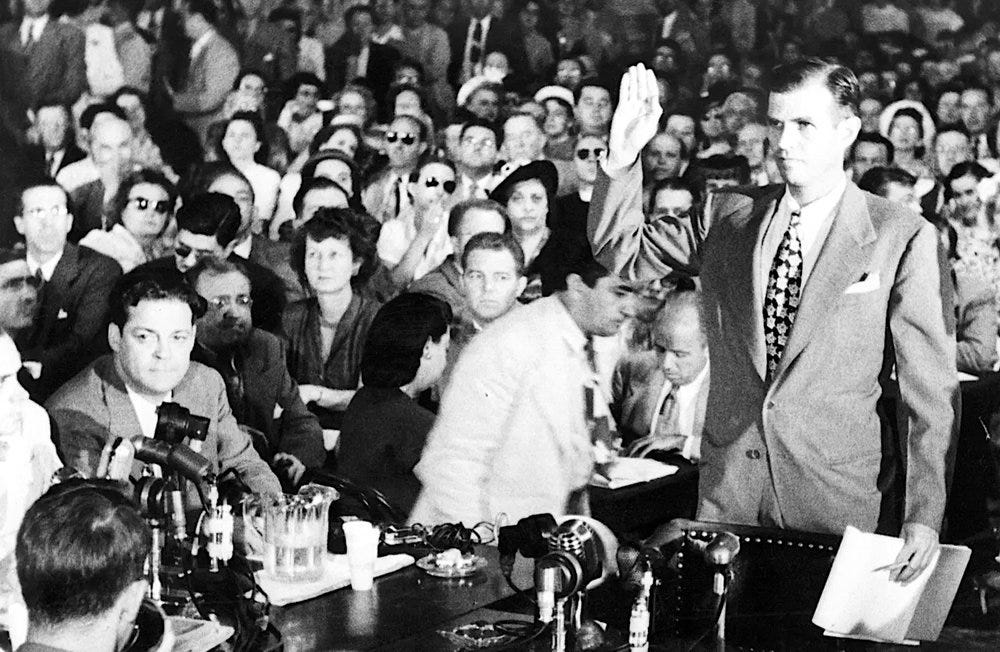The New McCarthyism: Why Labeling Dissent Is a Dangerous Trap?
Have you noticed how easily some ideas are now being branded as dangerous? We’re diving into how recent policies classifying anti-capitalist views as ‘domestic terrorism’ echo a dark chapter in American history, threatening our freedom of thought and speech. It’s a personal journey into why this matters for all of us.
The Uncomfortable Question We Must Ask Ourselves
Lately, I’ve been wrestling with a deeply uncomfortable question: when does holding a different opinion, especially about big societal structures like capitalism, become something dangerous? Something the government might label as ‘terrorist’? It sounds extreme, I know, but recent developments suggest we’re on a slippery slope where political dissent could be reclassified, giving immense power to those who wish to silence opposition. This isn’t just about obscure policy documents; it’s about the air we breathe, the conversations we have, and the future of what ‘freedom’ truly means for us. We need to look closely at this, because the implications for our individual liberties are staggering.
When Ideas Become a ‘Terrorist Threat’
You might have heard whispers, or perhaps even read the formal directives: concepts like “anti-capitalism” and even vague “anti-American” views are now being categorized, in certain governmental circles, as forms of domestic terrorism. If this sends a shiver down your spine, you’re not alone. I immediately think back to the McCarthy era in the 1950s, a time when merely being suspected of communist sympathies could ruin lives, end careers, and ignite widespread fear. It was a witch hunt, plain and simple, predicated on the idea that certain thoughts were inherently dangerous to the nation.
The most radical revolutionary will become a conservative the day after the revolution.
– Hannah Arendt
Arendt’s insight here is chillingly relevant. It highlights how definitions of ‘threat’ are fluid and often weaponized by those in power to maintain their status quo, turning those who once challenged the system into the very system’s enforcers or accusers. We’re seeing a similar mechanism at play now, where the state seeks to define who is ‘safe’ and who is ‘dangerous’ based not on actions, but on belief systems. This redefinition isn’t just bureaucratic; it’s an alarming cultural shift that demands our attention and critique.
Why This Threatens More Than Just ‘Radicals’
The implications of this reclassification extend far beyond those who actively identify as anti-capitalist. When the government begins to label specific ideologies as inherently terroristic, it creates a chilling effect that permeates throughout society. Think about it: if certain economic criticisms are deemed dangerous, how willing will you be to voice concerns about corporate power or wealth inequality in a public forum? Will academics be hesitant to research alternative economic models? Will journalists shy away from investigating systemic injustices for fear of being grouped with ‘domestic terrorists’?
This isn’t an abstract concern; it’s a direct threat to the very fabric of our open society. It curtails the vital exchange of ideas, which is essential for any healthy democracy to adapt and improve. The true danger lies in the gradual normalization of suppressing uncomfortable truths by reclassifying them as existential threats. This path leads us away from genuine dialogue and towards a society where conformity is enforced by fear, rather than by shared understanding or conviction. It’s a road we’ve seen paved before, always with disastrous consequences for individual liberty.
The salvation of this human world lies nowhere else than in the human heart, in the human power to reflect, in human meekness and in human responsibility.
– Vaclav Havel
Havel reminds us that the responsibility to resist such ideological tyranny ultimately rests with us, as individuals, to think critically and act with integrity.
Go Deeper
Step beyond the surface. Unlock The Third Citizen’s full library of deep guides and frameworks — now with 10% off the annual plan for new members.
Your Role in Protecting the Space for Thought
So, what can we do when our society faces such a subtle yet profound threat? First, I believe we must cultivate a deep historical awareness. Understanding the lessons of McCarthyism, totalitarian regimes, and other periods where dissent was demonized helps us recognize the warning signs today. We must learn to distinguish between actual threats of violence and the peaceful expression of unpopular ideas. We should vigorously defend the First Amendment, not just for the views we agree with, but especially for those that challenge our preconceptions.
Engage in respectful dialogue, even with those who hold vastly different perspectives. Support organizations that champion civil liberties and freedom of speech. Most importantly, refuse to self-censor simply because an idea has been politically inconveniently labeled. Our collective refusal to allow fear to dictate our discourse is our most potent weapon against this new form of ideological control. The freedom to think, question, and articulate diverse perspectives is a precious legacy we must actively protect, for ourselves and for future generations.




I'm sorry, I know I'm supposed to love my enemy, but trump is several levels beyond enemy category!!